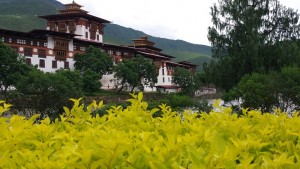Royal University of Bhutan

MDP Director
Thubten Sonam
thubtenst@gmail.com
Website: http://www.cnr.edu.bt/
Name of the College: College of Natural Resources (CNR), Royal University of Bhutan (RUB), Lobesa, Punakha Bhutan.
Name of the Programme: Master’s in Development Practice (MDP)
Duration and mode of study: 2 years Full Time
Introduction to College of Natural Resources (CNR)
The College of Natural Resources (CNR) is located in Punakha dzongkhag in the west central region about 65 km away from Thimphu capital city of Bhutan. It’s one of the federated Colleges of Royal University of Bhutan (RUB) offering undergraduate and diploma programs in the field of Agriculture, Forestry and Animal Husbandry. The College also offers two other 3 years undergraduate programs Sustainable Development and BSc in Environmental and Climate Studies and two Masters programmes, namely, MSc in Natural Resource Management (NRM) and Master’s in Development Practice (MDP).
Aims and objectives of the programme
The Master’s in Development Practice (MDP) offered by College of Natural Resources, Royal University of Bhutan is an interdisciplinary two-year full time graduate degree programme providing current and aspiring development practitioners the skills and knowledge to better understand, develop and implement integrated approaches to sustainable development. The programme is prepared in harmony with the Global Master’s in Development Practice prepared and offered by Earth Institute, Columbia University, USA.
The Royal University of Bhutan, in conjunction with and with initial financial support from DHI-Infra, has entered into an MOU with the Earth Institute at Columbia University, home of the Global MDP Secretariat, to launch an international Master’s in Development Practice programme at RUB’s College of Natural Resources by July 2013[1]. However, CNR could start the MDP programme only in June 2014.
The primary purposes and intentions of the Master’s in Development Practice programme at the College of Natural Resources are to provide comprehensive and relevant holistic training in sustainable development practice for Bhutan’s development professionals; to strengthen Bhutan’s role in the global dialogue on sustainable development by providing opportunities for international development practitioners to experience and research sustainable development from a GNH-based context; and to improve the quality of life for the world’s poor while maintaining a healthy planet.
Specific Objectives of the MDP Programme
More specifically, the Master’s in Development Practice programme seeks to;
- Impart core knowledge of the natural sciences, social sciences, health sciences and management from the perspectives of scientific concepts, policy implications and management techniques.
- Expose students to sustainable development challenges and practices from international, regional, national and local contexts.
- Ensure students understand the role of GNH, the MDGs, the SDGs and other high-level policies as they apply to all subject matter.
- Highlight cross-sectoral linkages and cumulative learning throughout the programme.
- Provide practical, hands-on learning through field experiences, case studies, practical exercises and cross-disciplinary projects.
After completion of the programme, MDP graduates are expected to
- Comprehend the key concepts and ‘languages’ of the natural sciences, social sciences, health sciences and management as they relate to sustainable development practice.
- Assess the complex challenges of sustainable development and poverty alleviation, identifying the interplay between sectors.
- Design and implement integrated solutions to sustainable development challenges.
- Work fluidly and flexibly across disciplines, policy levels and socioeconomic settings.
- Take on roles in management and leadership at project, programme and policy levels.
- Engage in life-long learning by keeping abreast of the latest developments, reflecting on results metrics, and participating in the global dialogue on sustainable development practices
Curricular Structure
Our MDP Programme comprises of 15 modules including Field Placement and Final Project, spanning approximately 21 months. The programme consists of 240 credits in total, with the pre-start zero credited courses on sustainable development, basic statistics and field visit. At this time, CNR cannot offer the option of part-time studies. Therefore, the mode of study will be full-time at CNR for the full duration of the program.
The intensive field placement, a required component of all MDP programs within the Global MDP Association, is scheduled from December to February. The brief academic calendar is outlined below. MDP field placements provide give students the opportunity to develop and implement a project in the field with a development partner. Development partners include NGOs, CSOs, government agencies, UN or bilateral agencies, or the private sector. Students collaboratively design a suitable project with the development partner, spend approximately 12 weeks working in the field on the project, and submit a final report with a presentation at the end of their work. Students are also required to submit weekly reports of their experiences to their supervising faculty member.
Summary of academic calendar
- Program Pre-Start (first year only) – mid August
- Teaching start (MDP) – late August
- Approximately 15 teaching weeks
- Review week – early December
- Exam week – mid December
- Winter break – approx. 1 month (until 20 Jan)
- Winter semester start – February
- Approximately 15 teaching weeks
- Review week – early May
- Exam week – mid May
- Field Placement – early December to end February (approx. 12 weeks)
[1] Memorandum of Understanding: Establishment of a Master’s in Development Practice Programme at Royal University of Bhutan, signed October 2011


